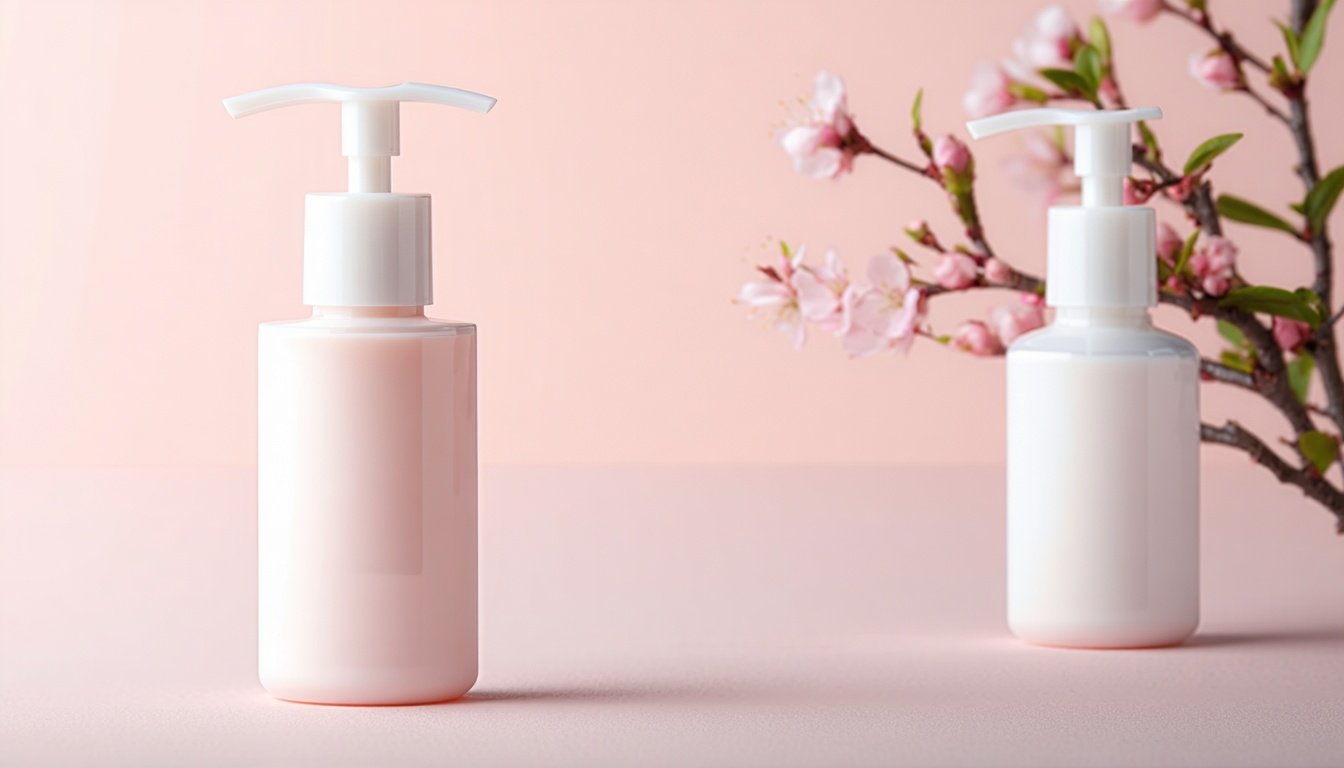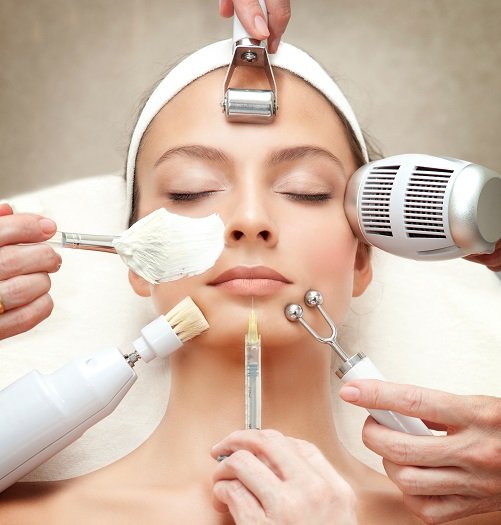Soothing Skincare Essentials
Understanding Skin Redness
Skin redness is like that uninvited guest who shows up after a facial, chemical peel, or laser treatment. It’s usually caused by irritation, inflammation, or just a bit too much blood rushing to the scene. Knowing why your skin is blushing is key to picking the right stuff to calm it down. To tackle redness, steer clear of things that tick your skin off, keep the area clean and dry, and if it’s an infection, antibiotics might be your new best friend (Healthline).
But hey, if you’re having a hard time breathing, or if your face, neck, or tongue decides to swell up, or you get chest pain or a fever that’s through the roof, it’s time to call in the pros (Healthline).
Importance of Post-Treatment Skincare
After a skin treatment, your face needs some TLC to heal up and keep those results looking fresh. The right products can help kick redness and irritation to the curb, bring back lost moisture, and chill out any swelling. Picking the right post-treatment skincare is like finding the perfect pair of jeans—it’s all about the fit. You gotta know which ingredients are your skin’s BFFs and which ones are frenemies (Ovation Med Spa).
Here’s a cheat sheet for what to look for in soothing products:
| Ingredient | Benefits |
|---|---|
| Hyaluronic Acid | Keeps your skin hydrated like a champ |
| Ceramides | Puts the skin’s barrier back in business |
| Niacinamide | Shields against the bad stuff and calms the storm |
| Aloe Vera | Soothes the skin and tones down the redness |
These ingredients are the MVPs in soothing products for post-treatment skin, making them top picks for tackling redness and irritation. For more skin-loving goodies, check out our list of post-treatment skincare products top-rated post-treatment skincare products dermatologists love.
Common Causes of Skin Redness
Skin redness is something a lot of folks deal with, and knowing why it happens can help you pick the right stuff to calm it down. Let’s chat about what in the environment and what medical stuff can make your skin go red.
Environmental Triggers
The world around you can mess with your skin, making it red and irritated. Here’s a quick look at some usual suspects:
| Environmental Trigger | Description |
|---|---|
| Sun Exposure | Too much sun can give you a nasty burn, leaving your skin red and sore. |
| Allergens | Things like pollen, dust, and pet hair can make your skin flare up and turn red. |
| Temperature Changes | Going from hot to cold or vice versa can make your skin freak out and get red. |
| Pollution | Dirty air can bug your skin, causing it to get red and inflamed. |
| Skin Care Products | Some skincare stuff has harsh chemicals that can irritate your skin and make it red. |
If your skin gets red after dealing with any of these, try using gentle products to calm it down. For more tips on what to use, check out our article on post-treatment skincare products top-rated post-treatment skincare products dermatologists love.
Medical Conditions
Sometimes, skin redness is a sign of something else going on with your health. Here are some medical reasons your skin might be red:
| Medical Condition | Description |
|---|---|
| Rosacea | This is a long-term skin thing that makes your face red with visible veins. You can manage it with treatment. (American Academy of Dermatology) |
| Allergic Reactions | Your skin can get red and puffy from allergies to food, meds, or stuff in the air. |
| Infections | Things like cellulitis or other skin infections can make your skin really red and need a doctor’s help. |
| Burns | Whether from chemicals or heat, burns can make your skin red and irritated. |
| Heat Rash | This happens when sweat gets trapped, causing red bumps and irritation. |
If your redness sticks around or comes with other issues like trouble breathing or swelling, get medical help right away. For more on handling specific skin issues, check out our articles on skincare routine after chemical peel the ideal skincare routine after a chemical peel and products to avoid after laser what not to use after laser treatments a complete guide.
Essential Ingredients for Soothing Skin
When your skin’s been through the wringer, picking the right stuff to slap on it can be a game-changer. Here’s a rundown of some top-notch ingredients that’ll help calm your skin down and keep it happy.
Aloe Vera Benefits
Aloe vera is like the cool friend who always knows how to chill things out. It’s a lifesaver for sunburns and other minor skin freak-outs. You can find it in all sorts of skincare and hair care goodies, or just grab some pure aloe vera gel to slather on directly. Its natural cooling vibe helps calm down inflammation and keeps your skin hydrated, making it a must-have in your post-treatment lineup. For more soothing options, check out our list of post-treatment skincare products top-rated post-treatment skincare products dermatologists love.
| Benefit | Description |
|---|---|
| Soothing | Calms irritation and redness |
| Hydrating | Keeps your skin nice and moist |
| Healing | Helps fix up damaged skin |
Hyaluronic Acid Properties
Hyaluronic Acid is like a sponge for your skin, soaking up moisture like nobody’s business. It’s a natural part of your skin and hair, and it’s a superstar in moisturizers because it can hold a ton of water. Perfect for keeping post-treatment skin hydrated without causing any drama. For more hydrating picks, check out our hydrating serums after treatment.
| Property | Description |
|---|---|
| Moisture Retention | Holds up to 1000 times its weight in water |
| Gentle | Plays nice with sensitive skin |
| Plumping | Smooths out those pesky fine lines |
Ceramides for Skin Repair
Ceramides are like the glue that holds your skin’s protective barrier together. They help patch up the skin’s outer layers, reducing the chance of irritation. Products with ceramides are a godsend for sensitive skin, making them a solid choice for post-treatment care. For more options, check out our guide on barrier repair cream.
| Function | Description |
|---|---|
| Barrier Repair | Fortifies the skin’s protective layer |
| Moisture Retention | Keeps skin hydrated |
| Irritation Reduction | Cuts down on skin irritation risk |
Adding these key ingredients to your skincare routine can really boost your skin’s recovery after treatments. Whether you’re dealing with redness, irritation, or dryness, these soothing elements can help bring your skin back to its happy place.
Post-Treatment Skincare Recommendations
So, you’ve just had a skin treatment, and now you’re wondering how to keep that fresh glow going. Well, you’re in the right place! Let’s chat about some must-have products that’ll help your skin bounce back and keep looking fab.
Targeted Serums for Healing
Serums are like the superheroes of skincare, swooping in to save the day. After a treatment, your skin craves a little extra love, and serums are packed with the good stuff to speed up recovery. Look for ones with peptides, antioxidants, and growth factors. These ingredients are like a spa day for your face, helping to fix up your skin, calm any redness, and keep you looking radiant. Need some ideas? Check out our list of dermatologist-approved post-treatment skincare products.
| Serum Type | Key Benefits |
|---|---|
| Peptide Serums | Boosts collagen and repairs skin |
| Antioxidant Serums | Fights off nasties and soothes redness |
| Growth Factor Serums | Kicks cell renewal into high gear |
Importance of Broad-Spectrum Sunscreen
Sunscreen is your skin’s best friend, especially after a treatment. You want at least SPF 30 to keep those pesky UV rays at bay and protect your skin’s new glow (ReplenishAW). Sun can be a real party pooper, causing irritation and slowing down healing. Slather it on every couple of hours if you’re out and about. For the lowdown on the best SPF picks post-treatment, swing by our article on top SPF products after cosmetic procedures.
| Sunscreen Type | SPF Level | Key Features |
|---|---|---|
| Mineral Sunscreen | 30+ | Gentle on sensitive skin, blocks physically |
| Chemical Sunscreen | 30+ | Light and fast-absorbing |
| Hybrid Sunscreen | 30+ | Best of both worlds, mineral and chemical |
Role of Moisturizers in Healing
Moisturizers are like a big, comforting hug for your skin. They lock in moisture and help your skin’s barrier bounce back. Go for ones without any nasties like fragrances or dyes, and look for hydrating heroes like hyaluronic acid, glycerin, or ceramides. For a full rundown of top moisturizers, check out our guide on best moisturizers after laser treatments.
| Moisturizer Type | Key Ingredients | Benefits |
|---|---|---|
| Gel-Based | Hyaluronic Acid | Light and non-greasy hydration |
| Cream-Based | Ceramides | Deep hydration, restores skin’s barrier |
| Oil-Based | Natural Oils | Seals in moisture, nourishes deeply |
Stick to these tips, and your skin will thank you by healing up nicely and staying healthy. And hey, always have a chat with your dermatologist for advice that’s just right for you.
Tailoring Skincare to Skin Conditions
Taking care of your skin, especially after treatments, means adjusting your routine to fit your skin’s needs. Let’s chat about how to handle rosacea, seborrheic dermatitis, and contact dermatitis.
Rosacea-Friendly Skincare
Got rosacea? Keeping it in check is all about using the right stuff. Dermatologists say to steer clear of products with irritating ingredients like fragrances. Moisturizing is a must, whether your skin’s dry or oily. A gentle moisturizer can hydrate, lock in moisture, and bring back those good lipids, making your skin happier. Studies even back this up, showing that rosacea-friendly moisturizers can boost treatment results (American Academy of Dermatology).
| Recommended Products | Benefits |
|---|---|
| Gentle Moisturizers | Hydrate and soothe the skin |
| Barrier Repair Creams | Improve treatment results and reduce dryness |
| Rosacea-Friendly Sunscreens | Protect against sun exposure, which can trigger flare-ups |
Managing Seborrheic Dermatitis
Seborrheic dermatitis can leave you with red, oily, and dry patches. The usual fix? Medicated shampoos and topical treatments. Pick products that are gentle and made for sensitive skin. Stick with them, and you’ll see those symptoms ease up.
| Recommended Treatments | Benefits |
|---|---|
| Dandruff Shampoos | Help reduce flakiness and irritation |
| Topical Medications | Target inflammation and redness |
Want more on what works? Check out our article on post-treatment skincare products top-rated post-treatment skincare products dermatologists love.
Treating Contact Dermatitis
Contact dermatitis happens when your skin throws a fit over an irritant or allergen. The trick is to figure out what sets it off and steer clear. Use soothing stuff without harsh chemicals or fragrances. Ingredients like aloe vera and chamomile are your friends here—they help calm things down.
| Recommended Ingredients | Benefits |
|---|---|
| Aloe Vera | Soothes and hydrates irritated skin |
| Chamomile | Calms inflammation and redness |
For a full rundown on what to skip after treatments, swing by our article on products to avoid after laser what not to use after laser treatments a complete guide.
By tweaking your skincare routine for these conditions, you can keep symptoms in check and help your skin heal. Always chat with a dermatologist for advice that’s just right for you.
Skincare Tips for Sensitive Skin
Taking care of sensitive skin is like handling a delicate flower—one wrong move and it wilts. So, let’s dive into some handy tips that’ll keep your skin happy and irritation-free.
Ditching the Nasty Stuff
When you’re picking out skincare goodies, steer clear of the nasty stuff that can mess with your skin. Some ingredients are like the villains in a superhero movie—they cause dryness, mess with your hormones, or make your skin even more sensitive (Dermatology Seattle). Hunt for labels that scream “gentle,” “hypoallergenic,” or “sensitive skin-friendly.”
| Nasty Stuff to Avoid | What It Does |
|---|---|
| Sulfates | Makes your skin feel like sandpaper |
| Parabens | Plays havoc with your hormones |
| Fragrance | Can turn your skin into a red, itchy mess |
| Alcohol (denatured) | Sucks the moisture right out |
Spotting the Sneaky Allergens
Sensitive skin can be a drama queen, reacting to even the most natural ingredients. Keep an eye out for common allergens that might cause your skin to throw a tantrum (Dermatology Seattle). Always give new products a test run on a small patch of skin before going all in.
| Sneaky Allergens | What They Do |
|---|---|
| Fragrance | Causes redness and itching |
| Essential Oils | Can lead to irritation or a rash |
| Lanolin | Might trigger allergic reactions |
| Dyes | Can irritate your skin |
Why Alcohol-Free is Your Skin’s BFF
Alcohol in skincare can be a double-edged sword. While it helps with texture and absorption, it can also be a nightmare for sensitive skin. Going alcohol-free is like giving your skin a big, comforting hug (Dermatology Seattle). Look for products that keep your skin hydrated without the harshness.
| Why Alcohol-Free Rocks | What It Does |
|---|---|
| Less Irritation | Keeps skin reactions at bay |
| More Hydration | Locks in moisture like a pro |
| Gentle Formulation | Perfect for sensitive souls |
Stick to these tips, and you’ll be on your way to finding the best soothing skincare products for redness and irritation. For more skin-loving advice, check out our articles on post-treatment skincare products top-rated post-treatment skincare products dermatologists love and best products for post-facial care best products to use after a facial for glowing skin.





















